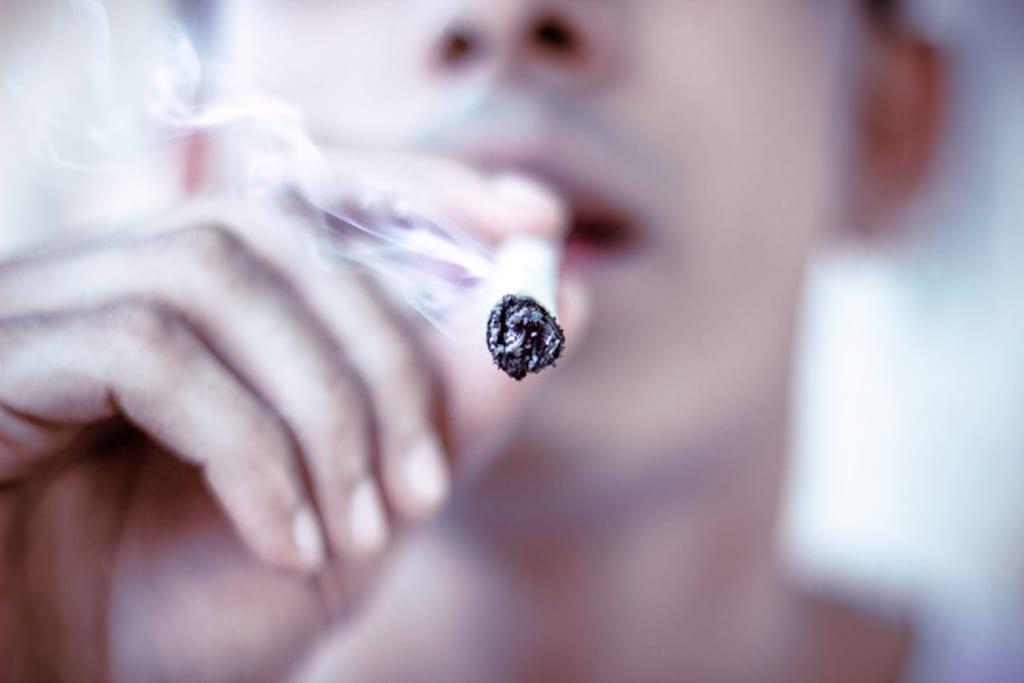Is Marijuana Withdrawal a Real Thing?
Marijuana withdrawal is real, but that doesn't necessarily mean that you'll ever experience it.

Discussing the subject of marijuana withdrawal is no easy task. Many people are simply unwilling to ask the question: Is marijuana addictive?Proponents of both medical and recreational medical marijuana use are quick to insist that smoking marijuana isn't at all addictive, making it impossible to go through the withdrawal process. Detractors, however, decry it as a gateway drug, and suggest that your first toke is also your first step toward substance abuse. It's a complicated situation. The truth lies somewhere in the middle, as it usually does. To be fair, it skews toward the safety of marijuana consumption. While withdrawal does exist, and addiction by the same token, it's not widespread. In fact, you can say the phenomenon is rare. It depends more on the individual than the cannabis.
Understanding Marijuana Addiction
The first thing you have to realize is that marijuana withdrawal doesn't affect everyone. Marijuana dependence is rare, but it does happen. Dependency, in fact, is often the issue. Not all marijuana users develop any type of dependence on cannabis, however. It has more to do with how an individual reacts to the dopamine release triggered by consumption. According to Psychology Today, 10-30 percent of people who regularly use marijuana will become dependent on it, while approximately 9 percent have a legitimate addiction. In both cases, the users will experience cannabis withdrawal to varying degrees.
Focusing on Cannabis Withdrawal Syndrome

Image via Unsplash
Cannabis Withdrawal Syndrome is a more common problem than addiction, but it leads to its own set of symptoms, and they are usually unexpected since the prevailing belief is that marijuana isn't at all addictive. Heavy users who have smoked pot for years can develop a dependency to the herb. In trying to quit cold turkey, they experience a variety of symptoms that are highly annoying, not to mention uncomfortable and unpleasant. Unlike the side-effects that occur when someone uses a harder drug, such as cocaine or heroin, the symptoms of marijuana withdrawal aren't ordinarily debilitating, although again, that depends on the person.
CWS generally affects people who have used cannabis for an extended period of time. The symptoms are mild—more so than the withdrawal symptoms of alcohol and smoking, for example. The problem is that they're incredibly irritating, and depending on your sensitivity and tolerance, they can edge toward the unbearable.
The Effects of Long-Term Use
Marijuana addiction happens in people who already have an addictive personality, which is why cannabis has the rap of being a gateway drug. Long-term users may not experience it as an addictive substance, but they're still apt to notice the lack of the drug in their system. More than anything, those marijuana users who do experience withdrawal are likely to feel off-centered, concerning their mental health. Brain fog and the inability to concentrate are the most common effects.
Increased Irritability During Marijuana Withdrawal

Image via Unsplash
Irritability is one of the most prevailing symptoms of marijuana withdrawal. The dopamine receptors get a bit angry because they're no longer being triggered. For people who use cannabis to deal with anxiety and depression, the lack of herb in their system is exceptionally noticeable, and those feelings may come back in spades, sometimes resulting in panic attacks or a hair-trigger temper.
Creeping Insomnia
Insomnia is one of the most distressing symptoms of marijuana withdrawal given that a lack of sleep is genuinely detrimental. Because users of medical marijuana frequently use the herb to deal with an inability to sleep, depression, pain, or anxiety, the insomnia is particularly problematic. Many enthusiasts who have tried to quit, either gradually or all at once, are quickly felled because they can't sleep.
Experiencing Anxiety

Image via Unsplash
Even people who aren't anxious can experience anxiety as one of the symptoms of marijuana withdrawal. Those who have quit describe feeling antsy, as if they're crawling out of their skin. They feel uneasy, can't get comfortable, and may develop restless tics, such as restless leg syndrome.
Going Through Depression
The National Institute on Drug Abuse cautions against depression during any type of drug withdrawal. While it's a more severe side effect of drugs that are stronger or more hardcore, it still affects people going through marijuana withdrawal. Lethargy sets in, and it's hard to find the motivation to go about daily life.
Letting the World Revolve Around Weed

Image via Unsplash
When dealing with CWS, withdrawal symptoms include a lack of interest in anything except cannabis. In most cases, marijuana withdrawal won't leave you preoccupied with the drug. However, users who develop or discover a dependence issue become unable to cope with the thought of not having a handy stash.
Losing Your Appetite
Loss of appetite is a real worry during the process of marijuana withdrawal. Medicinal users often rely on the herb to stimulate their appetite. Quitting marijuana thereby causes them to lose their appetite. Even tokers who don't use the drug to feel hungry can find that they aren't interested in food as they come off the drug.
Increasing Headaches

Image via Unsplash
Although CBD oil can stop migraines or headaches, marijuana withdrawal may bring on an onslaught of these symptoms if you are experiencing CWS. They may not reach the level of a migraine or a cluster headache, but that depends on the individual. The unrelenting quality of these headaches makes it harder to quit cold turkey.
Facing the Inability to Stop
As they experience withdrawal, some people discover that they can't stop using marijuana. The symptoms don't let up and, in some cases, they get worse. At that stage, it might be time to consider looking into treatment centers that specialize in marijuana addiction and Cannabis Withdrawal Syndrome.
Chasing the High

Image via Unsplash
For some users, the marijuana withdrawal process is unbearable. Worse, they discover that a high from cannabis is no longer adequate. They may begin to chase the initial high they experienced, or they may experiment with progressively harder drugs to feel the same euphoria.
It bears repeating that not everyone who uses cannabis will experience marijuana withdrawal, even if they attempt to quit. Dependency on the drug strikes a small percentage of users, and the portion that suffers addiction is even lower still. However, if you want to stop but find that it's hard to quit, there are numerous ways you can reduce the risk of using cananabis, as well as resources to help you defeat these symptoms.
About the Creator
Wendy Weedler
Lives in Washington D.C. Has been part of the legalization movement for decades.






Comments
There are no comments for this story
Be the first to respond and start the conversation.